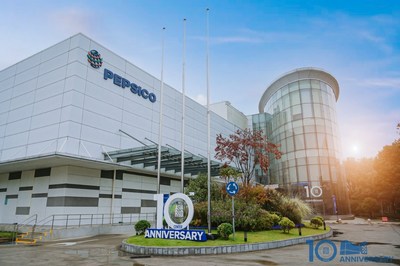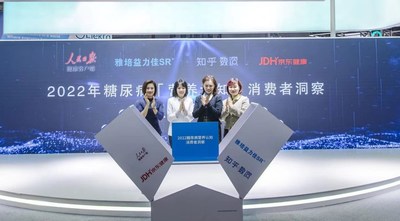南方财经全媒体记者 杨雨莱 李依农 博鳌、上海报道
On March 29th, at the "Promoting High-Quality Development" press conference held by the State Council Information Office, senior officials from Guangdong Province briefed the public on the progress of Guangdong's efforts in advancing high-quality development.
As an important measure for promoting high-quality development, what advantages and opportunities does Guangdong possess in the new round of large-scale equipment renewal and trade-in of consumer goods? Let’s hear from Xiang Xiaomei, Deputy Director of Guangdong Academy of Social Science.
Xiang Xiaomei, Deputy Director of Guangdong Academy of Social Science
Xiang Xiaomei: Through consumption-driven impetus,traditional advantageous industries and advanced manufacturing have improved. So this policy is a very important development opportunity. In other words, with the impetus of consumption and policy stimuli, we can enhance our products from the supply side and improve our technology.
Through large-scale equipment upgrades, much like how we previously advanced technological reforms, enterprises in Guangdong can truly benefit from the advantages brought by the global technological revolution. On a micro level, policy support can also allow enterprises to make progress and reduce costs. With the advantage of cost reduction, those enterprises are motivated. With the broader societal support, coupled with the availability of technological equipment and supplies, it also allows enterprises to seize opportunities for development. So on a macro level,the stimulus from consumption elevates the market.the overall technological proficiency of industries, particularly in the manufacturing sector, has been enhanced.
On a micro level, enterprises also have the impetus and opportunity to drive technological upgrades and equipment renewal, which plays a crucial role in improving Guangdong's manufacturing industry. This also represents a significant opportunity.
Guangdong is the major player in foreign trade
In the first two months of this year, Guangdong's economy has continued to rebound and improve. Industrial growth reached 10.6%, consumption increased by 6.1%, investment grew by 4.3%, and imports and exports surged by 24.9%.
As a major player in foreign trade, how do we evaluate Guangdong's performance in import and export growth during the first two months of this year? What are the characteristics of Guangdong's imports and exports? How will policies be strengthened in the next steps? What suggestions are there for accelerating the integrated development of domestic and foreign trade? Let's hear what Zhang Jianping, Deputy Director of the Academic Committee at the CAITEC, has to say.
ZhangJianping,DeputyDirectoroftheAcademicCommitteeatCAITEC
Zhang jianping: Guangdong is China's largest foreign trade province, accounting for nearly 1/4 of China's foreign trade scale, with advanced development in general trade and processing trade. Guangdong's economy has a high degree of internationalization. On the basis of a large foreign trade scale, Guangdong was able to achieve double-digit growth in January and February, which highlights that Guangdong has made a good start in shaping new foreign trade competitiveness and expanding foreign trade market space.
Of course, we should also note that the data of January and February is based on year-on-year growth, while last year's data is relatively low. This year, in the process of stabilizing foreign trade, Guangdong will undertake important tasks. To accelerate the development of domestic and foreign trade integration, we need to focus on promoting our domestic standard certification and identification system along with the international standard system. We also need to strengthen mutual certification, with benchmarking.
In the process, it is necessary to constantly improving our standardization level, especially the basis of standard certification and identification, should be our credit and traceability system. Guangdong should take the lead in the country to explore more efficient practices. At the same time, the new high-tech technologies, such as blockchain technology, are also accelerating the application of our standard identification certification, where Guangdong also stands at the forefront of the country.
Expanding all-around opening up means that we are making good use of foreign investment, expanding foreign trade, vigorously carrying out foreign outsourcing, conducting overseas talent attraction, and better promoting the development of foreign economy, which is a systematical thinking model. In fact, it is also a response to the Party's 20th National Congress report and the 14th Five-Year Plan of the country, which clearly put forward to adhere to the principle of system thinking.
In the process of expanding all-around opening up, each two of them can achieve functions and roles as mutual promotion and collaborative development, jointly improving the level, and enhancing international competitiveness. We also expect that Guangdong, as China's major foreign trade province, can boldly take the lead in expanding all-around opening up, making new contributions to the the country's open economy, and the institutional opening up.
Guangdong is significant forglobal collaboration
Overseas experts also recognize Guangdong and the GBA's strategic importance and potential for economic development, innovation, and collaboration both within China and on the global stage. Let's take a closer look at their impressions.
John Quelch, Executive Vice Chancellor of Duke Kunshan University
John Quelch: Guangdong is a very important long-standing area of China that has looked out to the world and has embraced the global economy in its history. And so I'm very optimistic that Guangdong will be one of the leaders in terms of the new quality productive forces. Guangdong is also home to many high-quality academic institutions and quality universities with outstanding researchers that are very important to the innovative capacity of the province. So Good luck to everyone in Guangdong.
It's always been an area that has looked outward and will enable it to respond to the global needs in terms of the priorities that need to be set for new product development, for new technology for new services to be developed and I believe that Guandong because of its international historic perspective will be able to play an leadership role along with the entire area
Kao Kim Hourn, Secretary-General of the Association of Southeast Asian Nations
Kao Kim Hourn: Well, certainly it is up to the Guangdong Provincial Government to decide what role it wants to play. I’m sure it has a lot of strengths. It should play in the areas of its strengths that it can play a positive role. But I certainly would like it to work together with ASEAN, not only between ASEAN and China, but also with each of the provinces of China. Because on its own, you know, like Guangdong, for example, is already a major economic force on its own.
So let’s see what we can do together in terms of taking advantage of the current Free Trade Area between ASEAN in China on one hand, but also in the context of the Regional Comprehensive Economic Partnership (RCEP), which, of course, Chinese companies are also very active to take advantage of this trade. The global, and the largest trading arrangement that we have, not only between ASEAN and China, but among the 15 countries, 10 from ASEAN plus China, Japan, Korea, Australia and New Zealand.
The GBA has a lot of advantages. Number one I understand is because of the geographical proximity between ASEAN and Chin. Second, I understand is because of the policy priority that China has, the Chinese government has given to the GBA. So we have been working together for many years already.
So I think there are many sectors that the GBA will play, ranking from manufacturing to high-tech area also in terms of the shipping, logistic, finance, for example. So even port. I would say why not link up whatever it has been doing? Because like I say, I believe that we should push all the areas, we should do more trade, we should have more investment on both sides.
We should have more cooperation in the tourism sector. We should enhance connectivity. And also I think what we need to do is that we wanna make sure that we all link up to the global supply chain so that we all have the opportunity to really maximize the current opportunity, but also opportunities in the future.
Bryan Pascoe, Chief Executive of International Capital Market Association
Bryan Pascoe: I think the GBA has again a huge potential. It's probably one of the biggest economic subregions within China, connecting so many energetic and innovative cities and benefiting from that connectivity with Hong Kong, as a financial hub. So, I think there'll be a lot of potential for the GBA as a region, to play a greater role in the financial markets in China, as we look ahead.
I think we have seen some innovations in China,specifically focused on financing the tech industry and utilizing the bond market to do so. So I think to the extent that the right standards can be developed the credit culture can be developed the processes to help foster some of those financing challenges using the bond market directly to help to promote the technology space would be a very welcome addition I think to what's already a growing and broadening bond market.
策划:于晓娜
监制:施诗
制作:李群 蔡于恬
新媒体统筹:丁青云 曾婷芳 赖禧 曾昭发
海外运营监制: 黄燕淑
海外运营内容统筹: 黄子豪
海外运营编辑:庄欢 吴婉婕 龙李华 张伟韬
出品:南方财经全媒体集团













